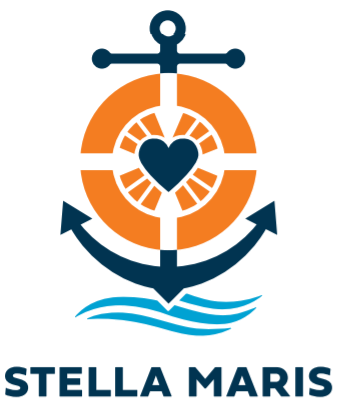“What I find most rewarding is a sense that AoS welcomes the stranger, and does so in the name of Jesus; seeing Christ in those we meet – in a work place and in situations which few see but on which all of us in the UK depend,” says David Chamberlain.
David is an AoS ship visitor in Poole in Dorset. Ship visitors are volunteers who spend a few hours each week supporting port chaplains in providing pastoral care and spiritual help to seafarers.
He decided to become a ship visitor after moving to Poole from Hertford in 2015.
David says, “My knowledge of the maritime world was very limited in so far as merchant shipping is concerned but I’ve always had a love for the sea and ships.
“I served for a while as a naval reservist in my twenties, in Leicester and Nottingham, so it was very much a case of ‘the dry land navy’. I have done a bit of sailing, dinghies and windsurfing. I’m now fortunate to have my own boat, in Poole Harbour.”
Before retiring, David spent 30 years as a civil servant in what was then the Department of Health and Social Security, ending up as a district manager in Hertfordshire.
He also spent 15 years working in a foster care project led by his wife Ingrid. “My first impressions when I began ship visiting were really ones of surprise. The crew on many ships is quite small, maybe five or six, including the captain, chief officer and engineer.
“I was also struck by the loneliness of seafarers, who spend months away from their homes and families. The vast majority of seafarers of ships visiting British ports – and bringing in the greater part of the ingredients for the food we eat and a majority of the items we use in daily life – are from abroad, notably from the Philippines. And this isolation is compounded by the limited opportunities for interaction with other crew members.
“Also, while conditions on nearly all of the ships I’ve visited have been good and clean in the mess and the crew’s quarters, these areas are invariably somewhat cramped – and the work on ship is still a hard way of earning a living.”
Most of the ships that dock in Poole are known as coasters and short sea traders. Some load up with grain or Purbeck clay, which is taken to Spain and Portugal for the ceramics industry. A number of ferries operate to the Channel Islands and cruise ships also use the port.
David’s role as a ship visitor is to offer whatever help he can to the seafarers he meets. This might mean providing mobile phone top-up cards or access to the internet (most ships don’t have this but if they do it can be quite limited), arranging transport to local shops, or for a priest to celebrate Mass on board a vessel.
Going to sea might sound romantic, but the reality is very different. Seafarers can go weeks without having any contact with their families back home. This means they not only can miss the birth of a child or other significant family moments, but they can also experience anxiety over relationships.
Seafarers live a semi-nomadic life that is hidden from view. Many ports are far from towns and cities, and they exist behind security fences. The turnaround time for ships is quick and the shifts continue when a vessel is in port, so the opportunity for any kind of change of scenery or change in general is very small. In some cases, the ship can feel like a prison.
Having someone to talk to about what they are feeling can be of enormous help to a crew. Following the sudden death of the captain of a ship last year, David, along with port chaplain Rev Roger Stone and Fr John Webb, parish priest of St Mary’s, Poole, were on hand to support the devastated crew.
* David's story appeared in our 2017 Annual Review which you can view and download here.
[snippet:aos-donate]

